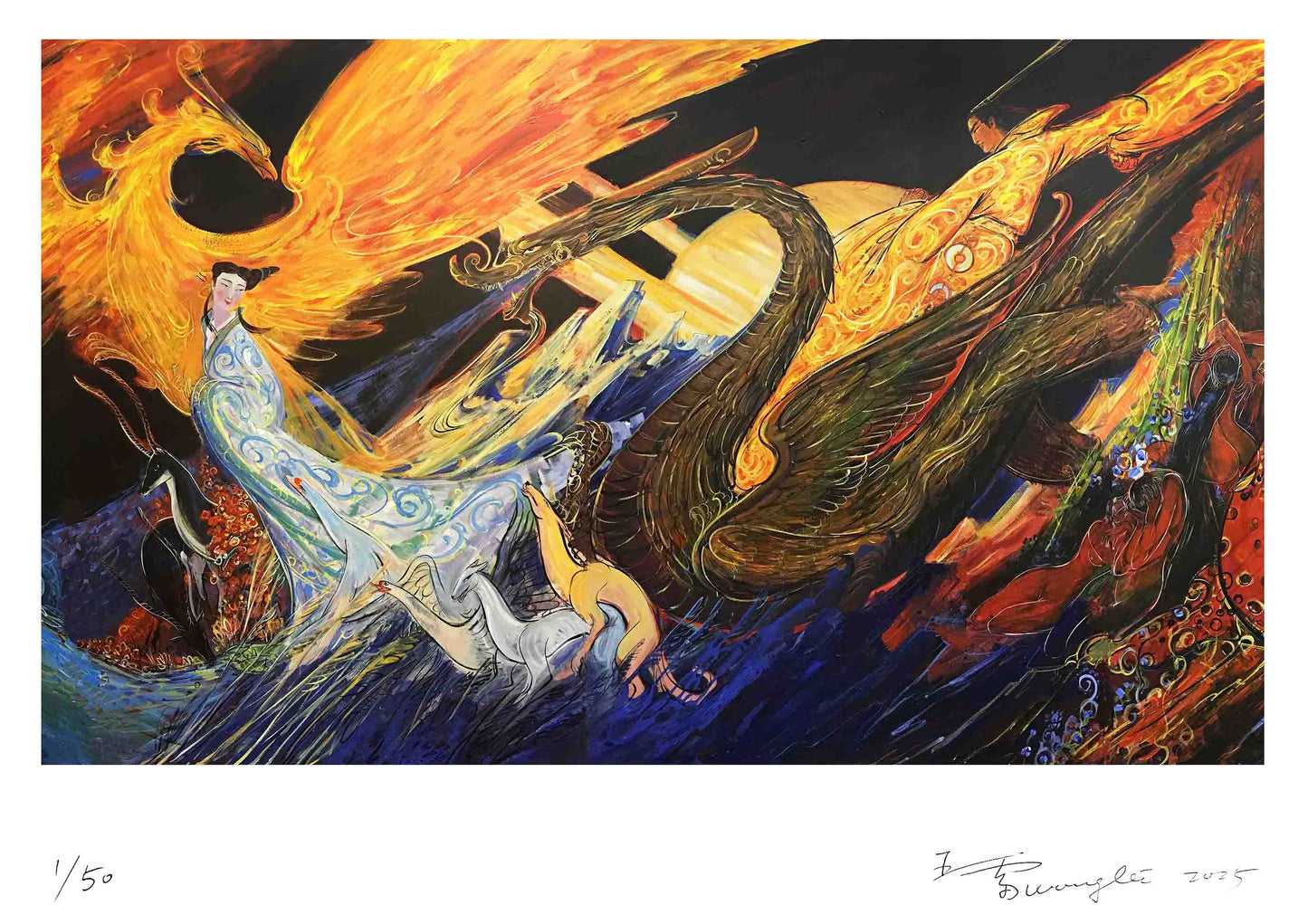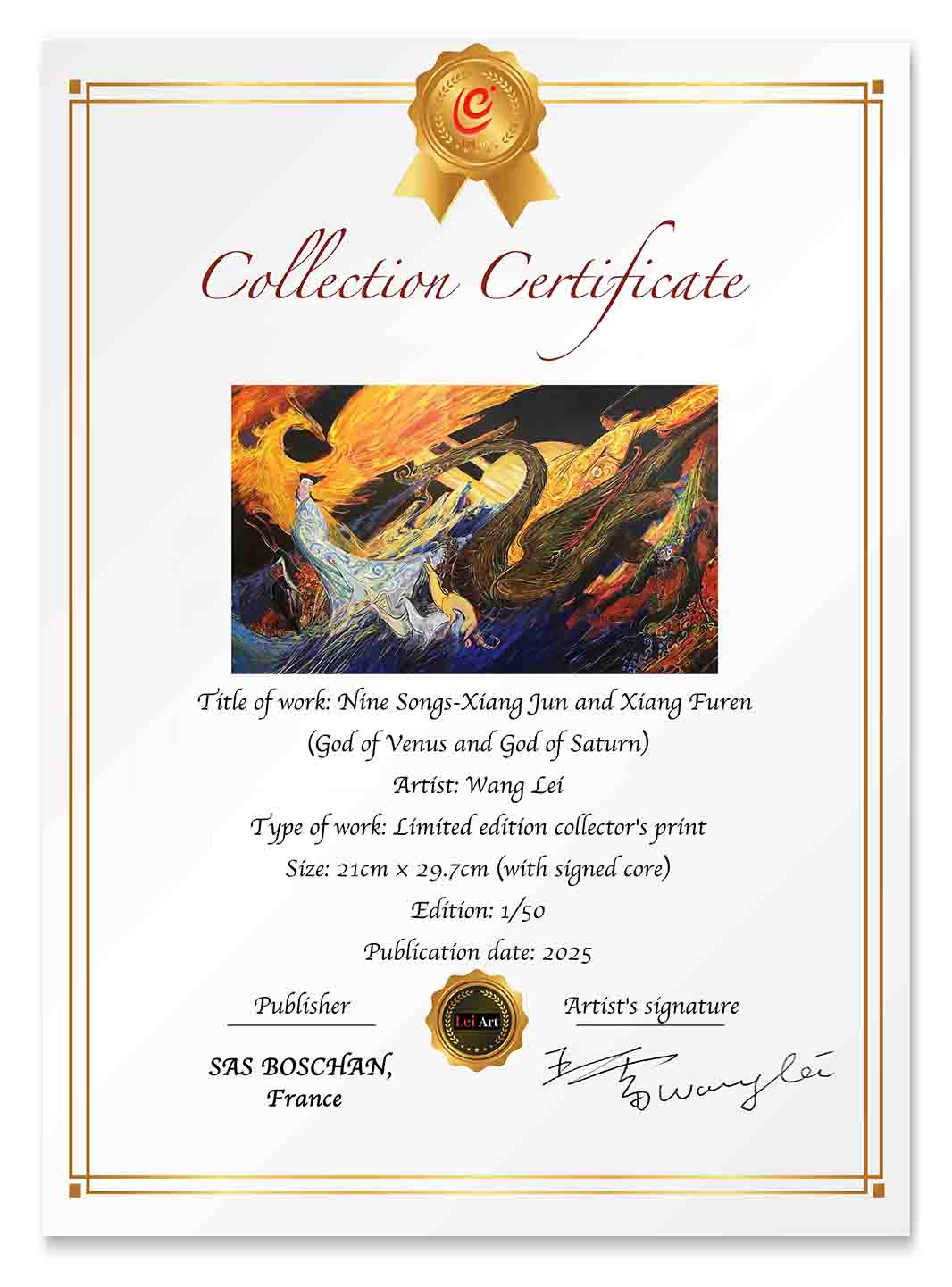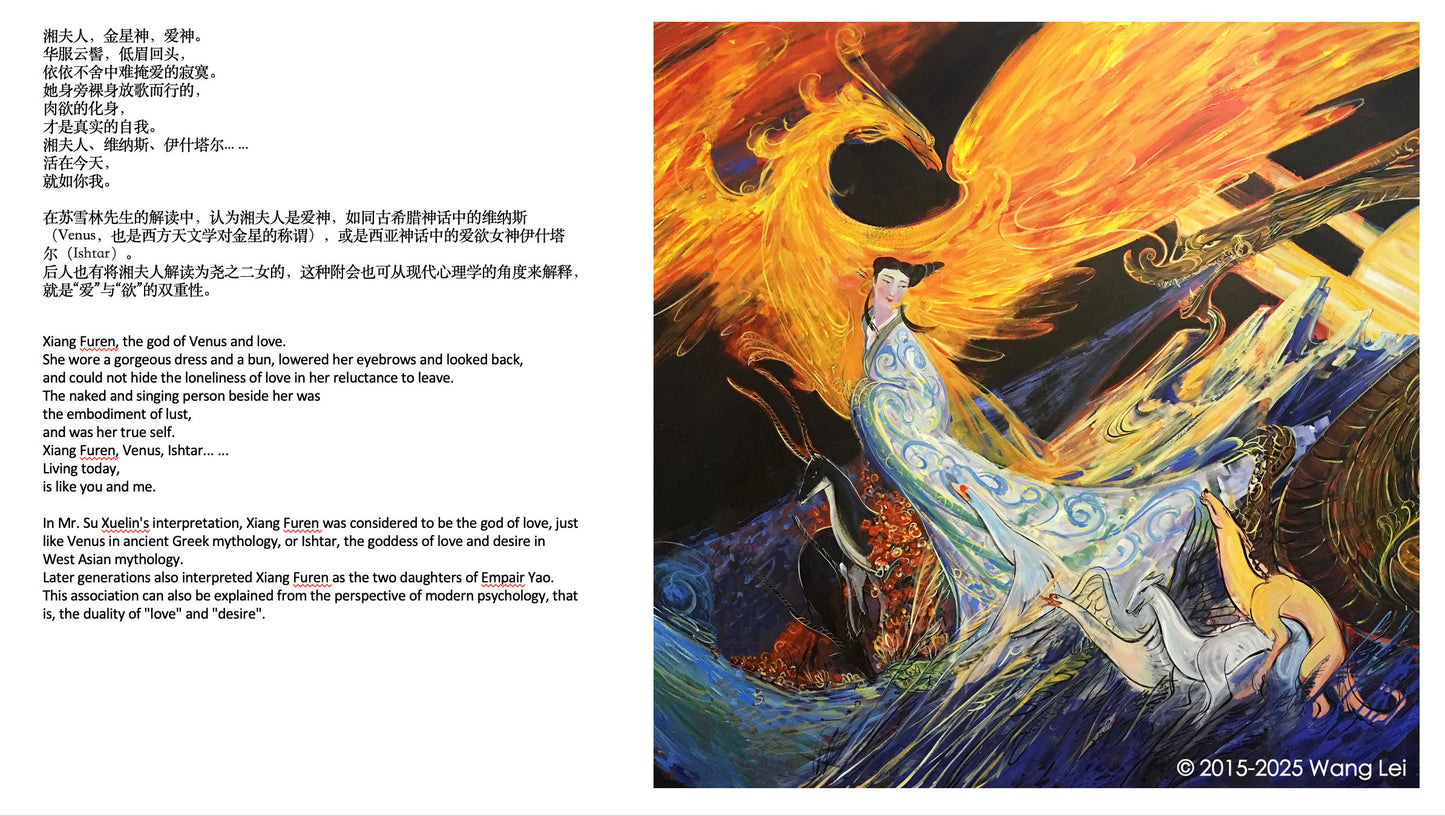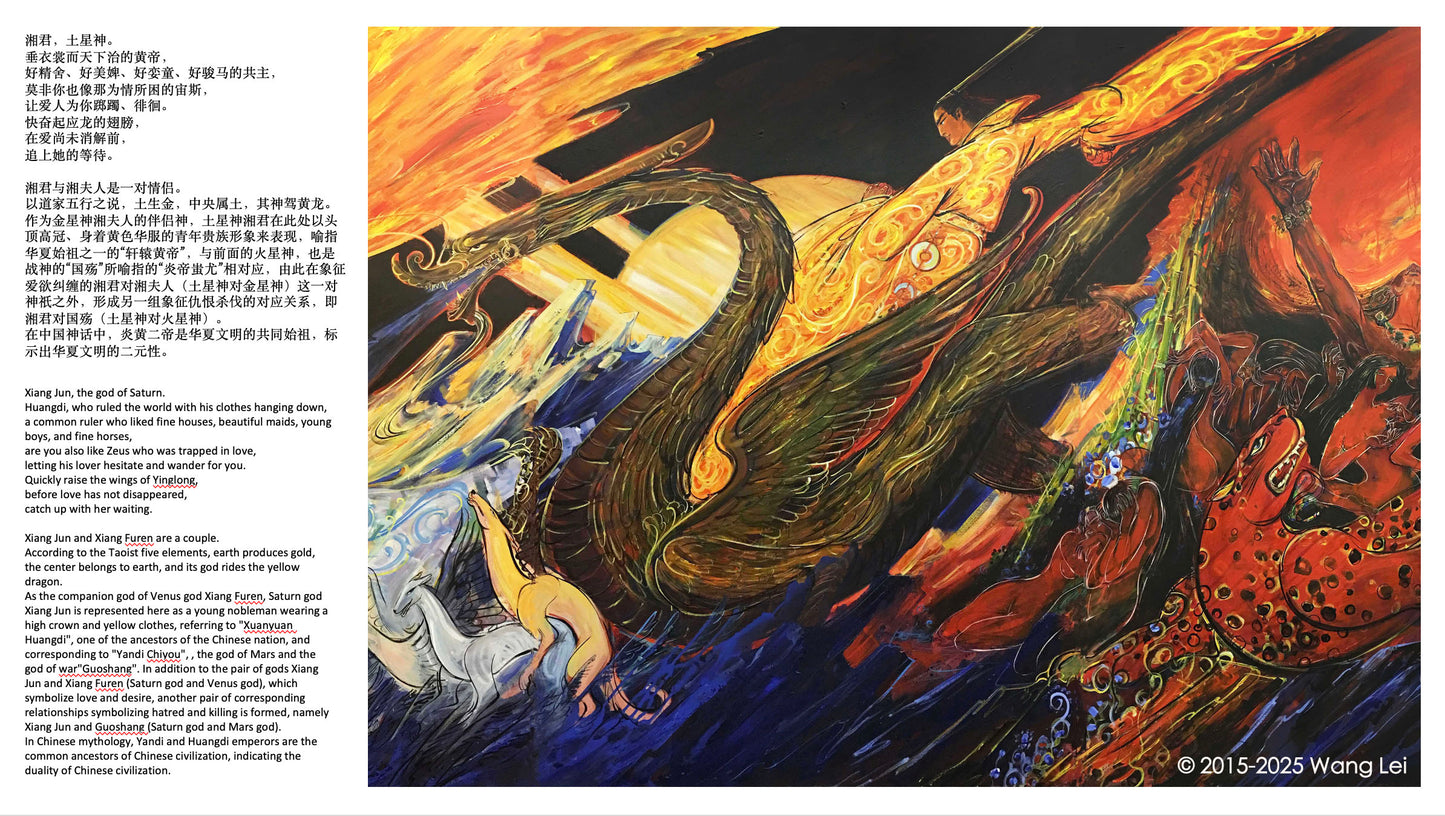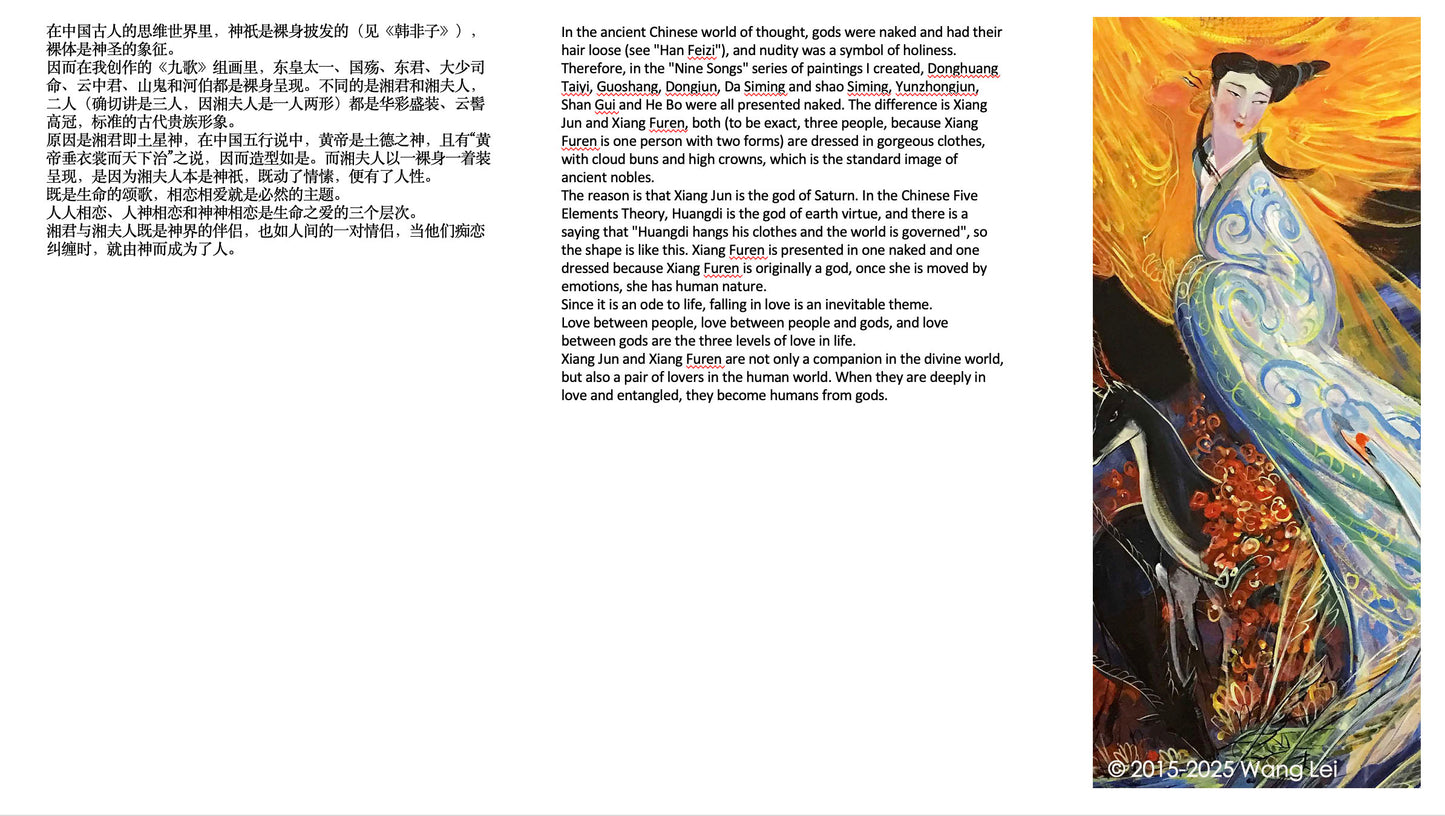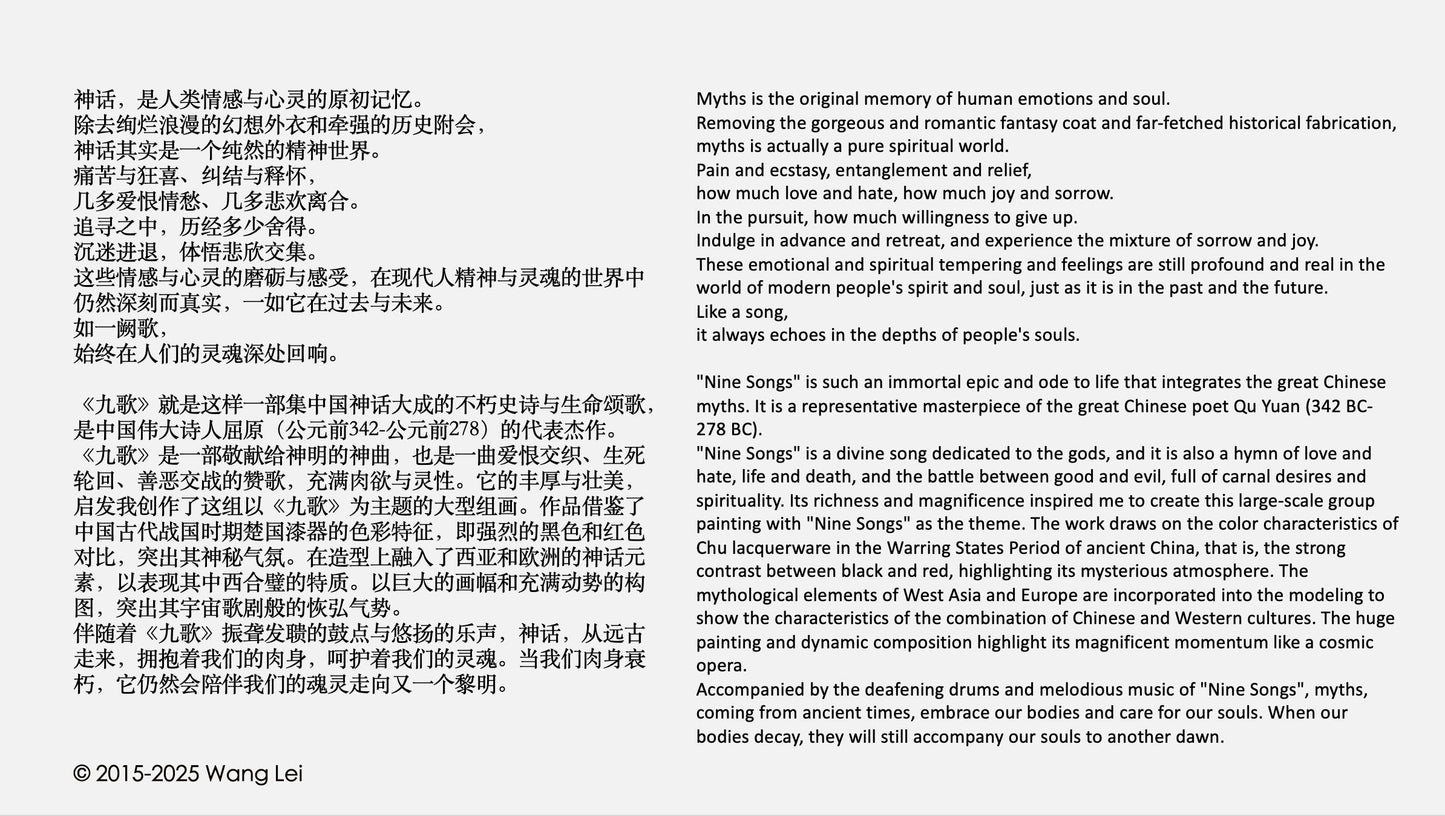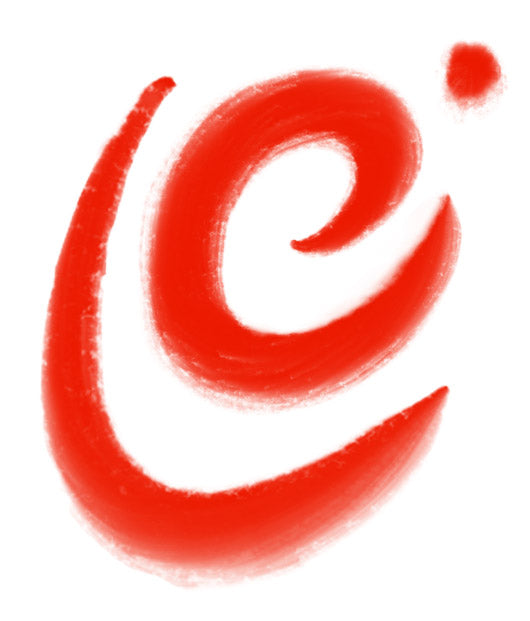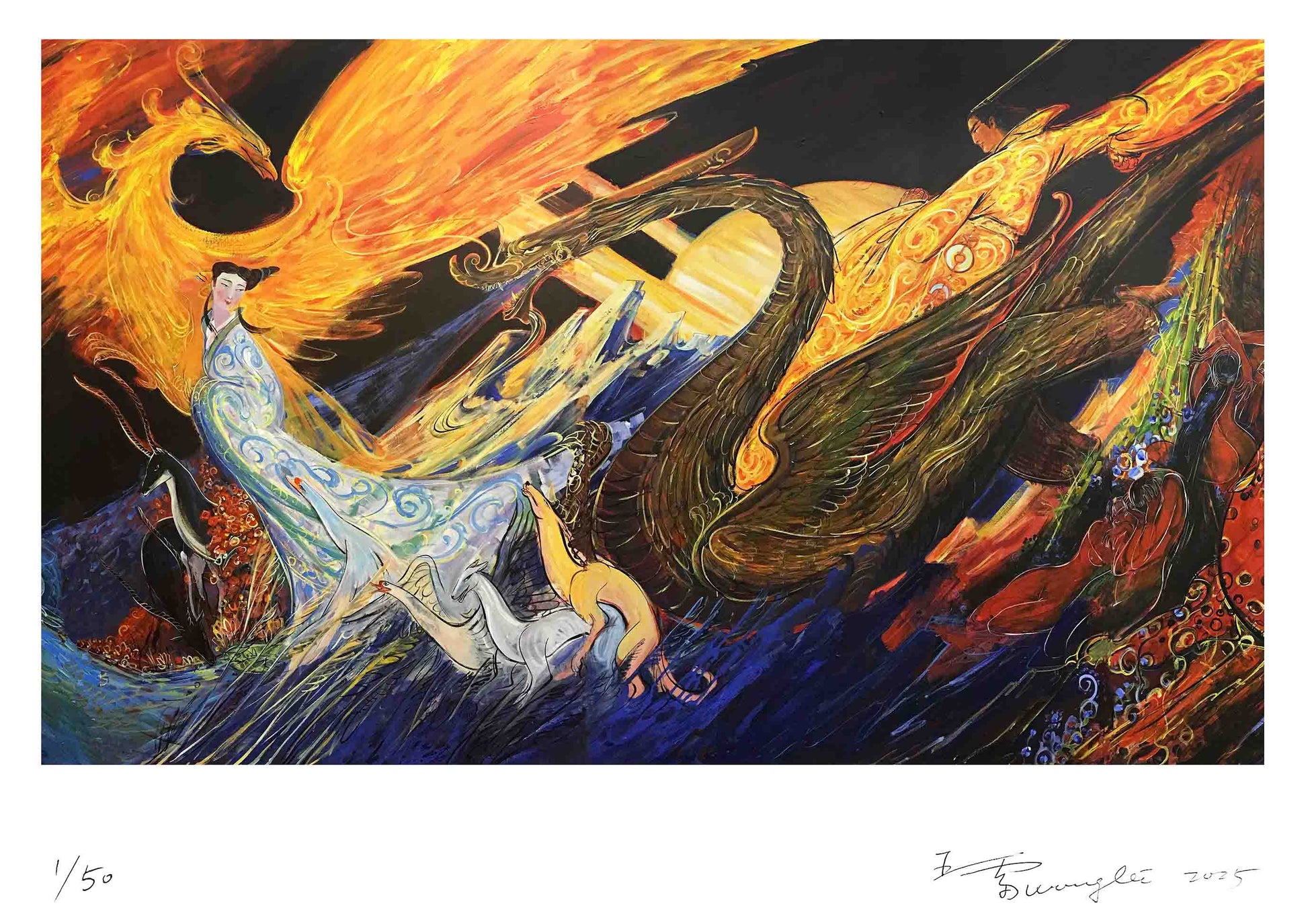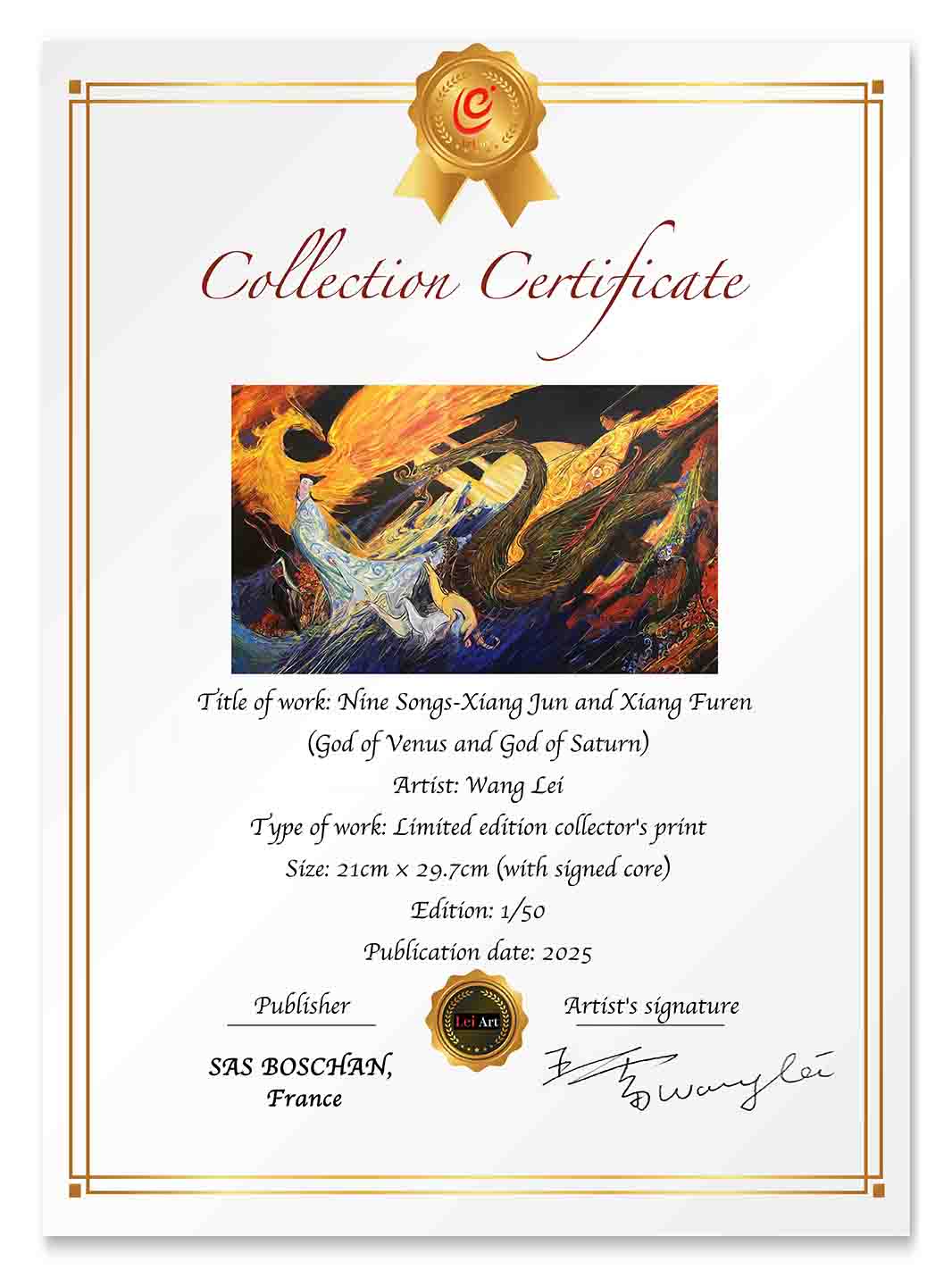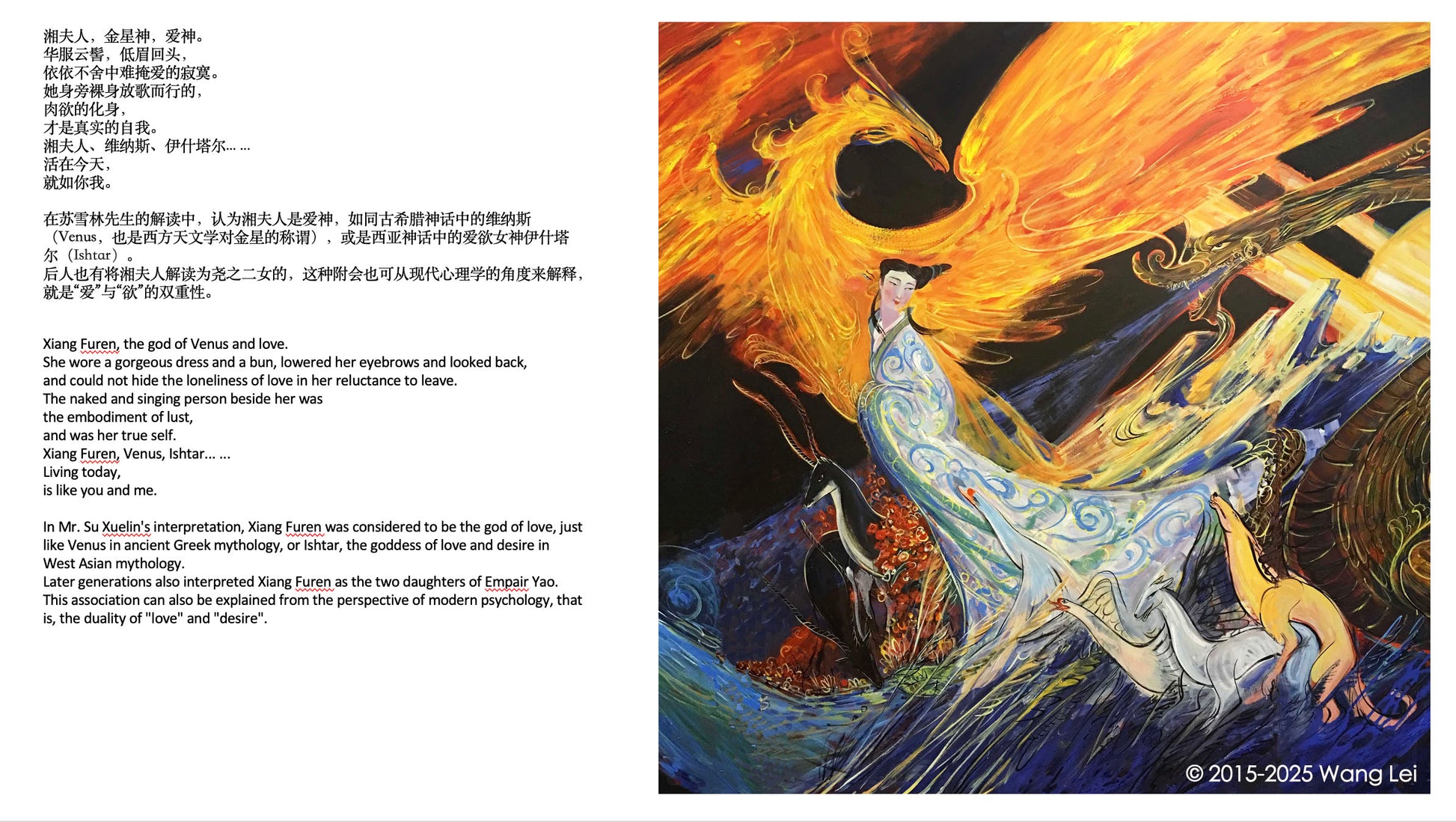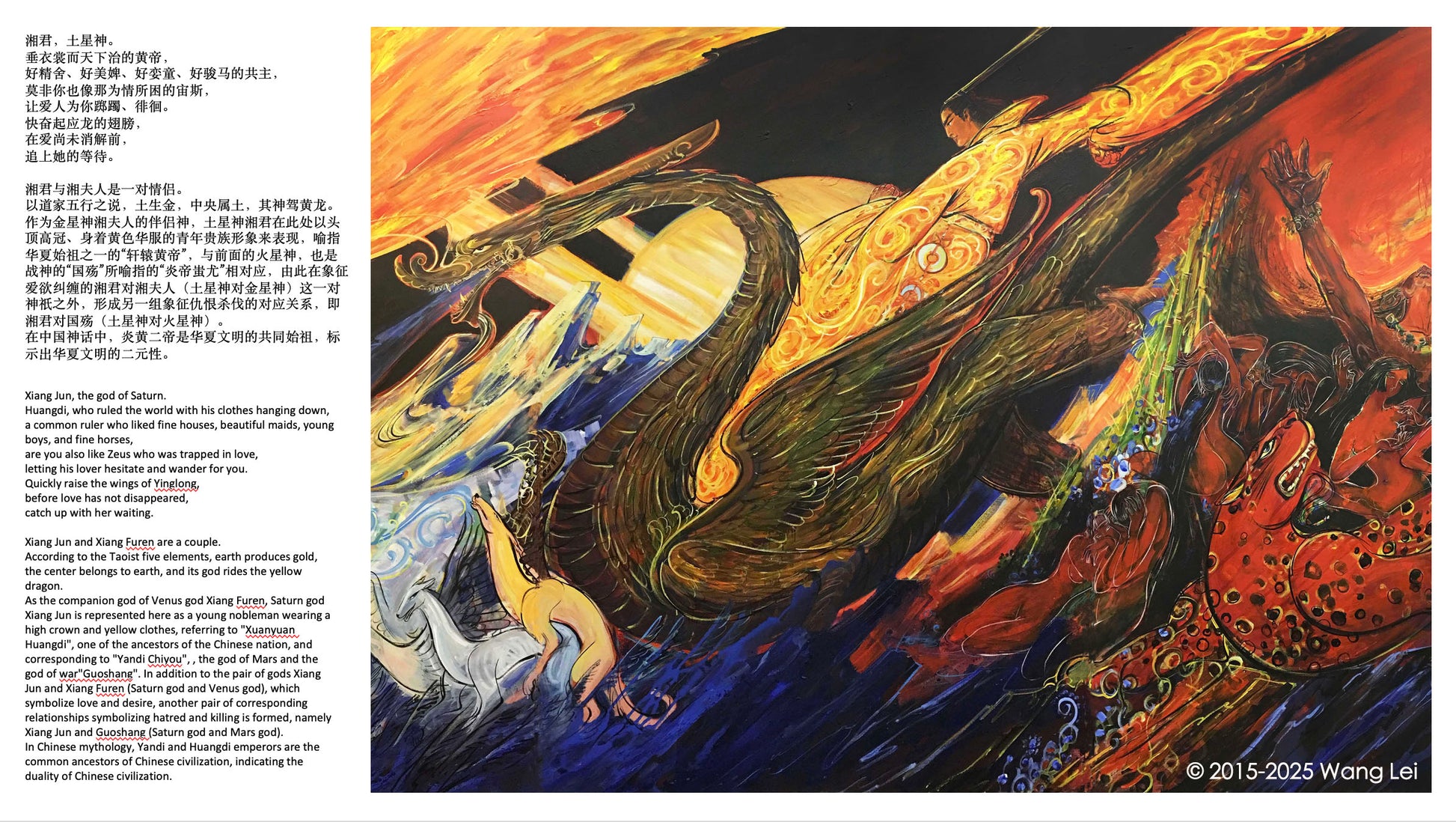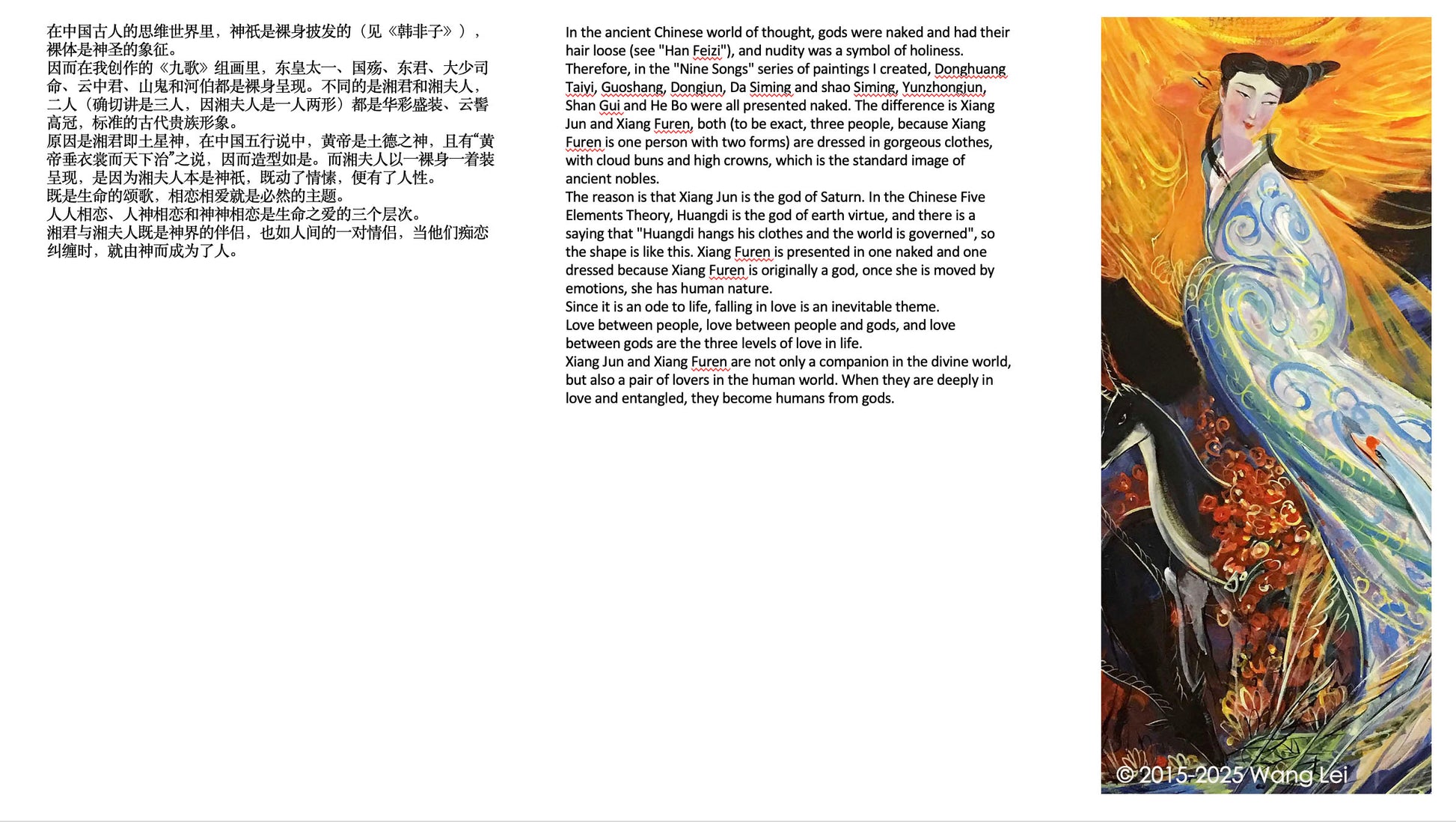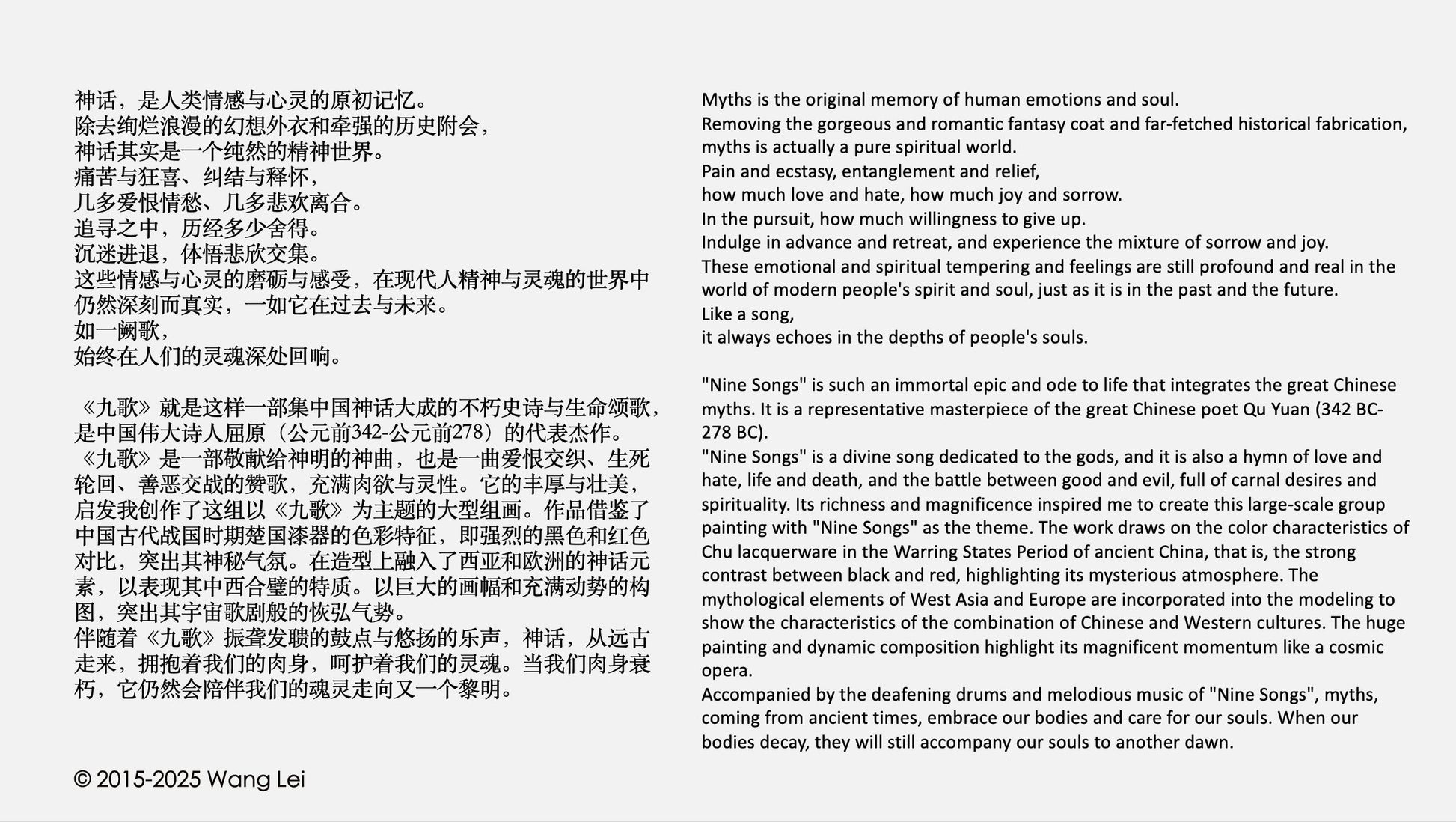1
/
/
8
LEI ART
Nine Songs-Xiang Jun and Xiang Furen (God of Venus and God of Saturn)
Nine Songs-Xiang Jun and Xiang Furen (God of Venus and God of Saturn)
常规价格
€1.200,00 EUR
常规价格
促销价
€1.200,00 EUR
已含税费。
数量
无法加载取货服务可用情况
Share
Artist: Wang Lei
Title of work: Nine Songs-Xiang Jun and Xiang Furen (God of Venus and God of Saturn)
Type of work: Limited edition collector's print
Limited edition: 50 pieces (random edition)
Size: 42cm × 29.7cm (with signed core)
Material: Collection-grade acid-free paper
Signature: Handwritten signature of artist Wang Lei
Appendix: Collection certificate attached
Publisher: SAS BOSCHAN, France
Myths is the original memory of human emotions and soul.
Removing the gorgeous and romantic fantasy coat and far-fetched historical fabrication,
myths is actually a pure spiritual world.
Pain and ecstasy, entanglement and relief,
how much love and hate, how much joy and sorrow.
In the pursuit, how much willingness to give up.
Indulge in advance and retreat, and experience the mixture of sorrow and joy.
These emotional and spiritual tempering and feelings are still profound and real in the world of modern people's spirit and soul, just as it is in the past and the future.
Like a song,
it always echoes in the depths of people's souls.
"Nine Songs" is such an immortal epic and ode to life that integrates the great Chinese myths. It is a representative masterpiece of the great Chinese poet Qu Yuan (342 BC-278 BC).
"Nine Songs" is a divine song dedicated to the gods, and it is also a hymn of love and hate, life and death, and the battle between good and evil, full of carnal desires and spirituality. Its richness and magnificence inspired me to create this large-scale group painting with "Nine Songs" as the theme. The work draws on the color characteristics of Chu lacquerware in the Warring States Period of ancient China, that is, the strong contrast between black and red, highlighting its mysterious atmosphere. The mythological elements of West Asia and Europe are incorporated into the modeling to show the characteristics of the combination of Chinese and Western cultures. The huge painting and dynamic composition highlight its magnificent momentum like a cosmic opera.
Accompanied by the deafening drums and melodious music of "Nine Songs", myths, coming from ancient times, embrace our bodies and care for our souls. When our bodies decay, they will still accompany our souls to another dawn.
Xiang Furen, the god of Venus and love.
She wore a gorgeous dress and a bun, lowered her eyebrows and looked back,
and could not hide the loneliness of love in her reluctance to leave.
The naked and singing person beside her was
the embodiment of lust,
and was her true self.
Xiang Furen, Venus, Ishtar... ...
Living today,
is like you and me.
In Mr. Su Xuelin's interpretation, Xiang Furen was considered to be the god of love, just like Venus in ancient Greek mythology, or Ishtar, the goddess of love and desire in West Asian mythology.
Later generations also interpreted Xiang Furen as the two daughters of Empair Yao. This association can also be explained from the perspective of modern psychology, that is, the duality of "love" and "desire".
Xiang Jun, the god of Saturn.
Huangdi, who ruled the world with his clothes hanging down,
a common ruler who liked fine houses, beautiful maids, young boys, and fine horses,
are you also like Zeus who was trapped in love,
letting his lover hesitate and wander for you.
Quickly raise the wings of Yinglong,
before love has not disappeared,
catch up with her waiting.
Xiang Jun and Xiang Furen are a couple.
According to the Taoist five elements, earth produces gold, the center belongs to earth, and its god rides the yellow dragon.
As the companion god of Venus god Xiang Furen, Saturn god Xiang Jun is represented here as a young nobleman wearing a high crown and yellow clothes, referring to "Xuanyuan Huangdi", one of the ancestors of the Chinese nation, and corresponding to "Yandi Chiyou", , the god of Mars and the god of war"Guoshang". In addition to the pair of gods Xiang Jun and Xiang Furen (Saturn god and Venus god), which symbolize love and desire, another pair of corresponding relationships symbolizing hatred and killing is formed, namely Xiang Jun and Guoshang (Saturn god and Mars god).
In Chinese mythology, Yandi and Huangdi emperors are the common ancestors of Chinese civilization, indicating the duality of Chinese civilization.
In the ancient Chinese world of thought, gods were naked and had their hair loose (see "Han Feizi"), and nudity was a symbol of holiness.
Therefore, in the "Nine Songs" series of paintings I created, Donghuang Taiyi, Guoshang, Dongjun, Da Siming and shao Siming, Yunzhongjun, Shan Gui and He Bo were all presented naked. The difference is Xiang Jun and Xiang Furen, both (to be exact, three people, because Xiang Furen is one person with two forms) are dressed in gorgeous clothes, with cloud buns and high crowns, which is the standard image of ancient nobles.
The reason is that Xiang Jun is the god of Saturn. In the Chinese Five Elements Theory, Huangdi is the god of earth virtue, and there is a saying that "Huangdi hangs his clothes and the world is governed", so the shape is like this. Xiang Furen is presented in one naked and one dressed because Xiang Furen is originally a god, once she is moved by emotions, she has human nature.
Since it is an ode to life, falling in love is an inevitable theme.
Love between people, love between people and gods, and love between gods are the three levels of love in life.
Xiang Jun and Xiang Furen are not only a companion in the divine world, but also a pair of lovers in the human world. When they are deeply in love and entangled, they become humans from gods.
